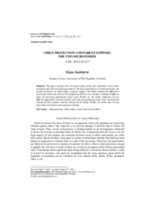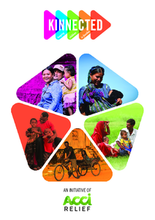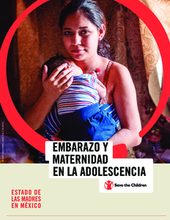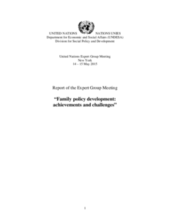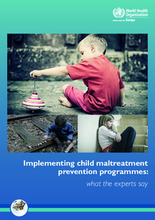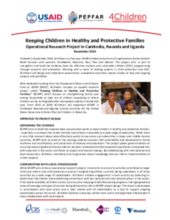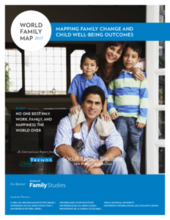Displaying 541 - 550 of 947
The overall objective of this study was to deepen understanding on the experiences and support systems of grandparent-headed households with children of prisoners (CoP) in Uganda.
This paper examines the two basic models of the state authorities’ intervention into family life aimed at protecting children.
Kinnected is a program run in 10 countries by the organization ACCI Relief aimed at preserving and strengthening families and assisting children currently in residential care to achieve their right to be raised in a family. This report describes Kinnected’s programs and initiatives underway in Cambodia, Sri Lanka, and Lesotho and includes some individual case studies.
Desde el año 2000, el Ranking anual sobre el Estado Mundial de las Madres se ha convertido en una herramienta fiable para mostrar en qué países les va mejor a las madres y sus bebés y dónde enfrentan las mayores dificultades.
The United Nations, Department for Economic and Social Affairs, Division for Social Policy and Development released the Final Report of the Expert Group Meeting (EGM) on "Family Policy Development: Achievements and Challenges” which was produced after the 14-15 May 2015 EGM. The meeting focused on changing families, family law reforms, violence in the family and their impact on family policy development.
This study reports on the findings from a randomized control trial of a 10-week home visiting program, Promoting First Relationships® (Kelly, Sandoval, Zuckerman, & Buehlman, 2008), for a subsample of 43 reunified birth parents of toddlers that were part of the larger trial.
This handbook authored by the World Health Organization Europe and Liverpool John Moores University – based on a series of interviews with the world's leading experts on preventing child maltreatment – provides practical information to policy-makers, practitioners and others on implementing prevention programmes. The handbook describes key principles for selecting and delivering programmes, and important practical considerations, including resources and technical support.
This two-page brief from USAID describes the “Keeping Children in Healthy and Protective Families” project, a project that is part of 4Children that “focuses on strengthening family care among households at high risk of children separating or where children can be reintegrated after having been placed in residential care.”
This webinar from Faith to Action Initiative presents key strategies for expanding the capacity of families to care for orphans and vulnerable children.
This annual report of the World Family Map Project shares the latest data on 16 indicators of family structure, family socioeconomics, family processes, and family culture in multiple countries as well as an original essay focusing on one important aspect of contemporary family life.

